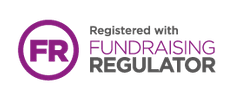Masking - Becs' Experience
Disguising parts of yourself and suppressing your identity can be draining and exhausting. For many autistic people, this is an everyday experience.
Masking is the act of concealing certain characteristics and performing others to better fit in. While everyone may mask in some capacity, it can be more common in autistic individuals as they face increased social pressures due to neurotypical expectations and norms.
Becs, who is the Training Coordinator at Autism Unlimited, recently received a diagnosis, and soon learned she had been masking most of her life without ever realising.
She said: “I felt inherently that I was different and it felt like everyone else knew what they were doing and I had no idea.”
It can be intentional or unintentional and vary from person to person. For Becs, it would mean suppressing certain behaviours that she felt made her stand out. It would include looking at how other people were acting and speaking and trying to emulate their behaviour.
A common feature of masking is mirroring the behaviors of others to better fit in and cope with social situations. For an autistic person, this could mean observing and mimicking the behavior of a neurotypical person.
It can also involve suppressing self-soothing behaviours, which may be perceived as different, such as stimming.
She added: “It’s a constant analysis of everything that’s happening around me and it’s exhausting. The only time where I feel I don’t have to mask is when I am on my own. I am trying to unmask more around people I’m comfortable with, such as my family, but it also feels quite conflicting because they’ve only known me as Becs as the person I presented to them.”
Masking can take a huge amount of effort, and when prolonged, can have negative effects on mental health and overall wellbeing. The constant stress and energy that comes with changing behaviours to cope with social pressures can lead to fatigue and even burnout.
After a lifetime of feeling different and hiding elements of her identity, the thought of sharing her true self with others and facing the uncertainty of their reactions is a scary prospect.
Describing her ideal scenario, she said: “I guess my ideal world would be giving myself the permission to be who I really am, and not worrying about how I’m being perceived or what other people are thinking, and understanding from other people, I think that’s something that’s really important to me.”
Increasing public understanding about autism can create supportive environments which welcome autistic traits and enable autistic individuals to be comfortable in their own identities. Through more education, we can build a society which embraces neurodivergence and difference patterns of thinking.






